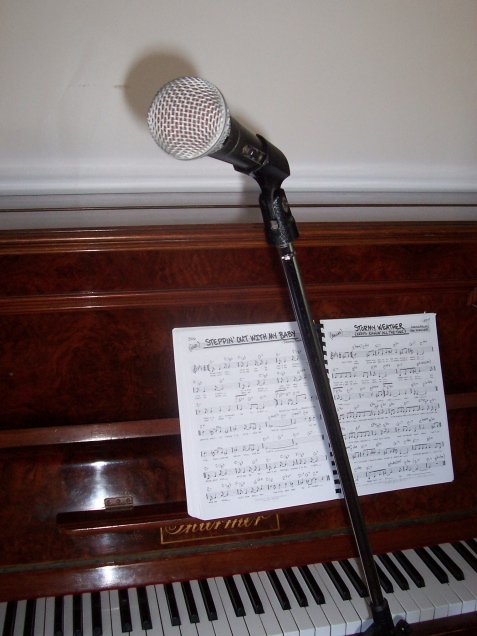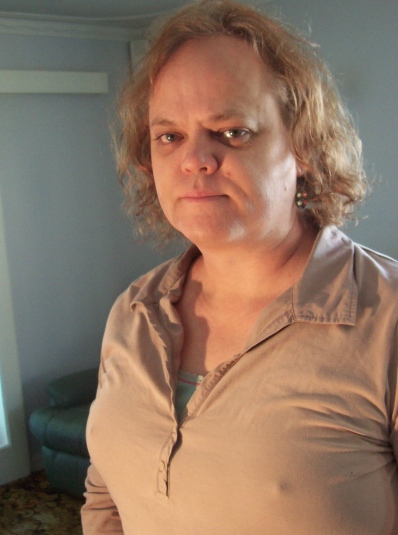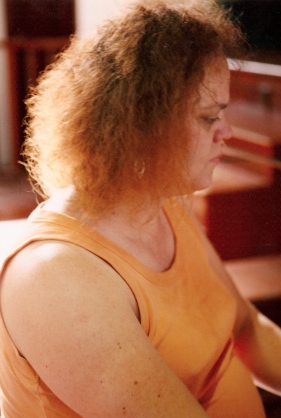
Tuition & coaching in voice (singing & speech), vocal health
piano, music theory, keyboard harmony
piano solo, piano accompaniment. Perth, Western Australia
Mx Margaret Dylan Jones
The Singing & Speaking Site
How I Learnt
|


HOW DID I LEARN ALL THIS? A great many experiences and studies have gone into my teaching technique for speech and singing, but my real strength lies in being able to draw on all of this, and more, and put it all together in analysing your voice.
Jo Estill
More than twenty years ago, in the late 1980s, I first learnt some of the vocal control manoeuvres developed by Jo Estill. I did this through being a 'guinea pig' myself in one of Jo's workshops in Perth.
Nasal Endoscopy
Around that time I went to a weekend workshop on her techniques run in Adelaide by another singing teacher and a speech pathologist. A 16 minute video of my own vocal folds in motion was made at the workshop. They had put a video camera up my nose and down the other side!
Extra Estill Study
And in 1997/98 I did six months of extra study and revision in some aspects of Jo's work with Ros Barnes, an accredited teacher of the Estill method. (Note, however, that I am NOT an Estill teacher.)
Choirs: A very tricky situation
Of course, in my early days doing a Bachelor of Music (composition) at the University of Western Australia I sang in all the choirs around the place. I had the great privilege to work under many wonderful choral conductors. This has given me a detailed understanding of the important differences between choral and solo singing, and how to manage this complex situation. I remember times when undergraduate singing students were forbidden to sing in choirs because it was seriously affecting their voices, whilst choral singing was compulsory for their instrumental classmates. (I have some special techniques for choral singing which I don't usually teach to my solo singing students, unless they are also in a choir.)
My First Singing Teacher
But I didn't start to learn solo singing until I landed a 22 hour-a-week job playing piano for singing lessons in Sydney in the early 1980s. After a week or so listening to Jean Callaghan giving tuition to her many pupils, I was so impressed that I asked if I could learn too. In 1985 I moved back to Perth and to date I've had regular lessons with six wonderful singing teachers.
ANATS committee, seminars
In the mid to late 1980s the Australian National Association of Teachers of Singing was forming, and I became the Secretary/Treasurer of the WA Chapter. In that year I helped to organise several events for our members and their students. Over the years I have attended (and in the early years helped to organise) many ANATS presentations from speech pathologists, an ENT specialist, language teachers, and many others.
Private Study & A Fresh One
On my own I have spent countless hours pouring over (as in really studying) many important voice textbooks. I have studied countless videos and diagrams of the larynx. Once, a student who was a nurse at a teaching hospital, arranged for us both to view a collection of a dozen diseased larynxes kept in jars. While we were looking at them the people in charge wheeled in a 'fresh one'. Use your imagination! Using the surgical gloves they supplied us with, we dug around looking all through the vocal mechanism, trying to find the actual vocal folds. We couldn't see them, even though the whole vocal tract had been cut open. It seems you need to have a 'live' one to see them because they really are folds, like folds of skin, and they retract and disappear post mortem.
The Most Important Learning Experience Of All
Also around that time, I lost my voice. I was completely mute, speechless. This lead me to have six weeks of speech therapy. Now THAT was a useful experience. I draw on what I learnt there every day. This experience really helped me understand how the voice (singing and speaking) really works, and how to put it all together.
Seth Riggs
And a couple of ideas have been borrowed from the American teacher, Seth Riggs. He has a very useful technique for smoothing out the register breaks. Works like a treat though, like any technique, you can do it wrong and suffer the consequences.
Languages
At high school (a very long time ago, back in last century) I took German for my TAE (year 12 exams). And I did a year of French in what we called "First Year". When I took up learning to sing, in 1984, my first teacher was absolutely brilliant at German and Italian, so that's what I learnt for 18 months. After I returned to Perth in 1985 I studied Italian 110 (i.e. for beginners) at the Uni of WA. And along the way I have had a few formal lessons in Putonghua (Mandarin Chinese) and Bahasa Indonesia. And, of course, I also teach singing in Latin.
This means I can teach singing in English, German, Italian and Latin. I will teach in French and other languages provided the student is already fluent in that language.
Back to the Main Voice Page
Mobile phone: 0414 374 701.
(Outside Australia: +61 414374701).
Email: see my contact page.
Vocal Lessons
The Singer's Formant
How I Learnt About The Voice
More About Vocal Lessons
Speech Restoration
Reviews & Resources
Disclaimer
The Piano Pages